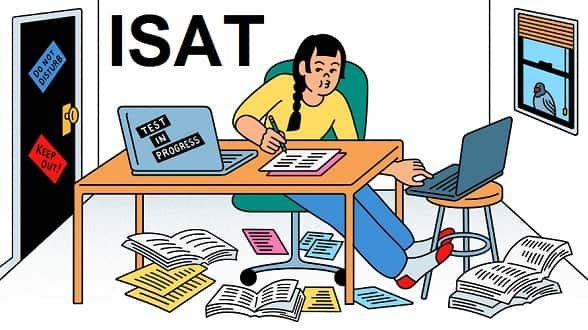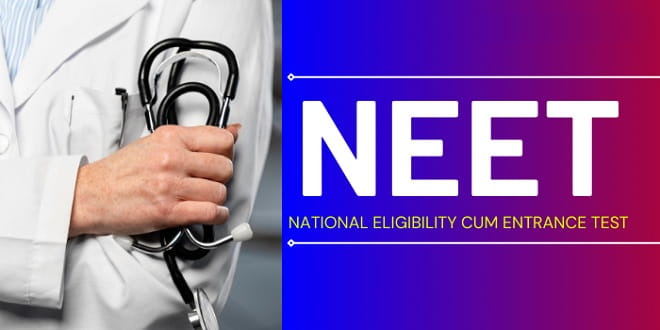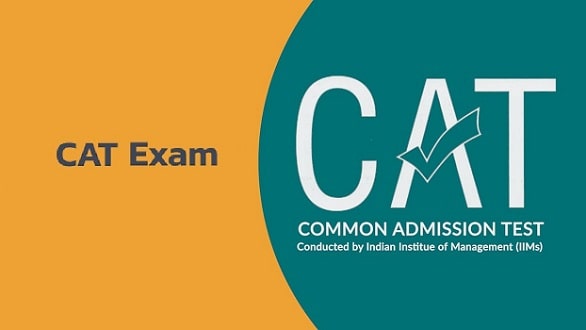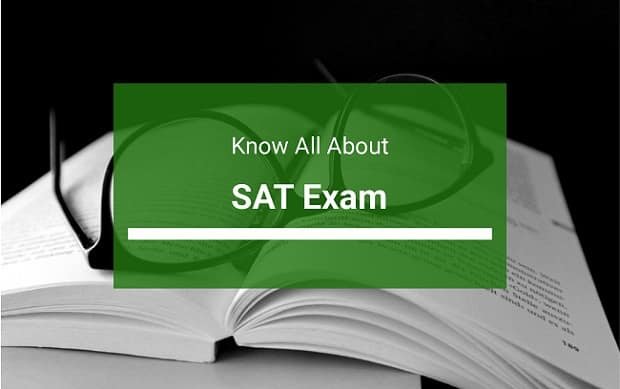ISAT stands for Indian Institute of Space Science and Technology Admission Test. The exam is conducted every year by the IIST, Indian Institute of Space Science and Technology. The ISAT exam is majorly conducted for those who wish to take admission in the B.Tech course.
Similarly, the admissions are based on your JEE score. All India rank plays an important role in this. The university will conduct a counseling session for all the students who appeared in the respective entrance tests and allot them seats in the university according to their performance.
The university is a deemed university under the Department of Space, Government of India. So it is an autonomous organization. There is both postgraduate and undergraduates engineering and technology course offered by the university. The selection criteria are the same, you need to sit for an entrance test and then the counseling process. The counseling process lasts for around 1-2 months. Only after that, the new session commences.
Eligibility Criteria
There are some eligibility criteria that you must fulfill before sitting for the ISAT exam. If you do not fulfill even any one of the criteria, your admission form is suspended. You can be barred from appearing in further exams for violation of rules and regulations. Following are the criteria:
- The aspirant should be Indian.
- The candidate’s age must not be more than 26 years
- For general/OBC category students the age should be after October 1, 1990, onwards.
- For SC/ST/PD students the age should be from October 1, 1985. These categories of students are given the privilege of additional 4 years to sit for the exam.
- The candidate must have appeared for JEE Mains and JEE advanced exams before applying for the ISAT exam.
- Aggregate marks percentage in class 10+2 exam combined in Physics, Chemistry, and Mathematics passed from a recognized board are-
- It should be 70% for General category students.
- It should be 60% for the reserved class.
- Aggregate marks percentage for students applying with JEE Advanced marks with the individual percentage in Physics, Chemistry, and Mathematics are-
- Total of 20% in whole for the General category. Along with an individual percentage of at least 5% marks in each of the three subjects.
- Total of 18% in whole for OBC category. With 4.5% marks in each of the above three subjects.
- With a total of 10% score in whole for SC/ST/PWD category. With 2.5% marks in each of the above three subjects.
Exam syllabus
After knowing that you are eligible for the ISAT exam, you must start your preparations accordingly. Here in this article, you get the whole syllabus of the ISAT exam to give your preparations the right direction.
The syllabus consists of three main subjects- Physics, Chemistry, and Mathematics.
The chapters you cannot miss out on in Mathematics are as follows. You can find the detailed structure of the chapters on the ISAT site where there are changes with time. This will help you decide how much effort you should put into a chapter.
- Probability
- Statistics and Probability:Measures of Dispersion
- Matrices and Determinants
- Three Dimensional Geometry
- Vector Algebra
- Co-Ordinate Geometry
- Differential Equations
- Limit, Continuity, and Differentiability
- Integral Calculus
- Sets, Relations, and Functions
- Complex Numbers and Quadratic Equations
- Binomial Theorem and Applications
- Trigonometry
- Sequences and Series
- Mathematics Induction
- Permutations and Combinations
The main chapters included in Chemistry are as follows.
Organic Chemistry-
- Haloalkanes and haloarenes
- Aromatic hydrocarbons
- Hydrocarbons
- Basic Principles and Techniques
- Alcohols, Phenols, and Ethers
- Ketones, Aldehydes, and Carboxylic Acids
- Organic Compounds Containing Nitrogen
Inorganic chemistry –
- Basic Concepts of Chemistry
- Structure of Atom
- Classification of Elements and Periodicity in Properties
- Chemical Bonding and Molecular Structure
- S-Block Elements (Group 1+Group 2)
- P-Block Elements (Group 13+14+15+16+17+18)
- d and f Block Elements
- General Principles and Processes of Isolation of Elements/ Metallurgy
- Lanthanides and Actinides
Physical Chemistry
- States of Matter
- Solutions
- Thermodynamics
- Equilibrium
- Electrochemistry
- Surface Chemistry
- Chemical Kinetics
- Nuclear chemistry
The main chapters observed under Physics are as follows.
For the Properties of Matter and Thermodynamics-
- Mechanical Properties of Solids
- Mechanical Properties of Fluids
- Thermal Properties of Matter
- Thermodynamics
- Kinetic Theory
For Mechanics section in Physics-
- Units and Measurements
- Motion in a Straight Line
- Motion in a Plane
- Laws of Motion
- Work, Power, and Energy
- System of Particles and Rotational Motion
- Gravitation
For the Electronics part under Physics-
- Electric Charges and Fields
- Electrostatic Potential and Capacitance
- Current Electricity
- Moving Charges and Magnetism
- Magnetism and Matter
- Electromagnetic Induction
- Alternating Current
For the Optics and Waves section in Physics-
- Wave Optics
- Ray Optics and Optical Instruments
- Oscillations
- Waves
- Dual Nature of Radiation and Matter
Exam pattern
To succeed in any exam you must be aware of its pattern of questions. This helps you in preparing the right type of questions and answers. You can manage your time accordingly.
The ISAT exam is conducted for three hours. The number of questions that are included is 120. These 120 questions will have an equal proportion of Physics, Chemistry, and Mathematics.
The exam is usually conducted in offline pen/paper mode where you will be assigned an exam center in your state preferably and you have to go and attend.
The marks distribution is such as each question will be of 3 marks. There is a negative marking. For each incorrect answer, you have attempted, your one mark will be deducted. The twist comes here, in the ISAT exam there is negative marking even for unattempted questions. So be careful while encircling the answer bubbles.
The exam is MCQ type where for each question you will be given four options. You have to choose one correct answer. You will be provided with an OMR sheet where you have to mark your answers carefully.
How to apply and Exam fees
You need to apply for the ISAT application form through an online form fill-up. The site for which is https://www.iist.ac.in. The application will ask for your personal details and educational profile. You must have the required details like-
- Aadhar number
- Phone number
- Email id
- Passport size photograph as mentioned by the institution
- Scanned signatures of you and your guardian
- JEE Main and JEE Advanced scorecard
- 10+2 and 10th class marks certificate and scorecard.
After you have successfully filled up the form online, you will be asked for payment. These are the non-refundable exam fees that you have to pay for validating your registration form.
The exam fees are decided as follows-
- Rs 600/- for General/OBC category students
- Rs 300/- fees for girls of general/OBC-NCL
- Rs 300/- for all SC/ST/PWD category students
You can pay the required fees through Challan or net banking. You should get the payment slip downloaded and printed for future use.
Other Important details
Issuance of Admit card- The admit card is the most crucial thing you must have on the day of your examination. So get 2-3 copies of it printed. This includes-
- Name of applicant and DOB as submitted
- Your application number
- Your roll number for the examination
- Site of exam center
- The date of your exam
- The allotted slot time
- Necessary things which you must/must not carry on the day of examination
- Your uploaded photograph
Result and scorecard – The results are usually declared in January. The dates can vary according to the date of examination. The final result for Ph.D. students is out only after their interview is completed. The results are published on the official site of IIST. You can find your results after entering your registration number and date of birth.
Counseling and Admission process – The cut-off for the IIST examination is released after the publication of results online. Those students who clear the cut-off get the chance to sit for counseling. There can be additional counseling and refundable security deposits included in the process. The counseling procedure is tentative to start from the first week of July. The results and admission process also depend on your JEE main and JEE advanced scores. The counseling can be held online or offline according to the situation that persists.
The documents which you must keep ready beforehand for the counseling procedure include-
- Passport size photographs.
- Admit Card.
- Score Card.
- Original medical certificate issued by the District Medical Board/ Competent Authority for Physically disabled candidates. There can be a medical certificate required for other candidates too duly signed by a doctor.
- All the originals of 10th and 12th class mark sheets. Keep a photocopy of these certificates ready too.
- Original admit card along and its photocopy.
- Original counseling letter along and the photocopy of same.
- SC/ ST/ OBC and other Community certificates duly signed and attested by the authorized authority.
Conclusion
The main courses offered by them include- Physical Sciences, Avionics, and Aeronautical Engineering. These courses are one of the highest demands in today’s world. You can be a part of the grand institution after passing your engineering entrance exams. The application process starts in June every month. This is a one-year process.
So get ready for the exam and do your vitals properly.
All the best!!!

Rahul Kumar is a passionate educator, writer, and subject matter expert in the field of education and professional development. As an author on CoursesXpert, Rahul Kumar’s articles cover a wide range of topics, from various courses, educational and career guidance.




